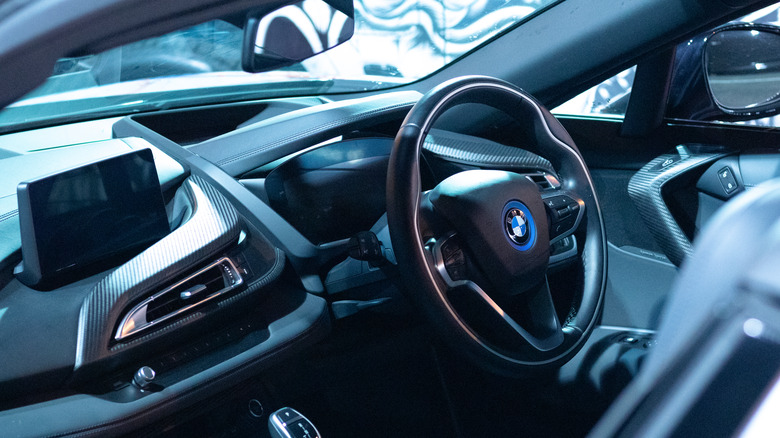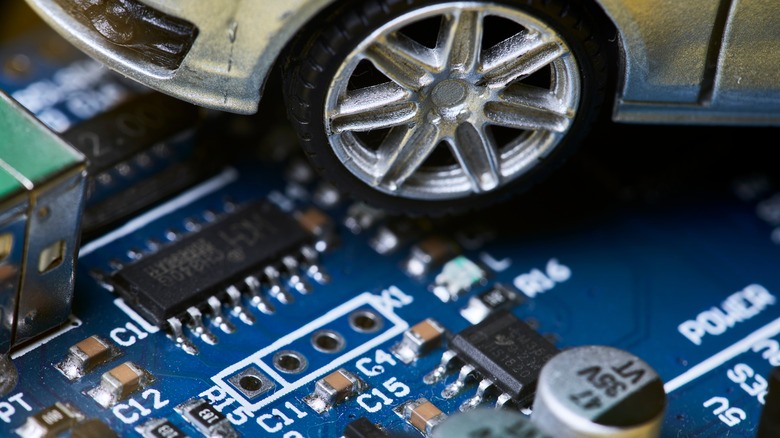Why Some New BMWs May Need A Software Update
In 2022, it's hard to come across cars that do not offer connected features enabled by apps like Android Auto and Apple CarPlay. The ongoing chip shortage, however, is forcing car manufacturers to do things that, well, simply do not happen under normal circumstances. Take the case of top German luxury car manufacturer BMW, which, according to Automotive News Europe, has started shipping select models of its 2022 cars without Android Auto or Apple Car Play support. Initial reports seem to indicate that several BMW customers came to know about these omissions after they received their cars (via Forbes).
The news of BMW omitting Android Auto and Apple CarPlay from some of its vehicles came barely three years after the German carmaker began a mission to widen the scope of connected tech in its models. Starting in 2019, BMW has worked to enable Apple CarPlay and Android Auto support on most of its vehicles, and this mission seems to have come to a grinding halt — at least temporarily — in 2022. According to Automotive News Europe — which first reported this development — BMW will enable these features on affected cars via a future software update.
The latest victim of the global chip shortage?
As outlined earlier, BMW's decision to omit Android Auto and Apple CarPlay support on select car models is not a cost-cutting move. Instead, the problem is a direct result of the ongoing chip shortage. BMW, in fact, confirmed this in a statement issued to Automotive News Europe. In the statement, BMW claimed that the ongoing ship shortage forced it to source a crucial microchip from another vendor.
While this move was made to expedite delivery timelines, an unintended consequence of this was that this chip did not offer support for either of these connected tech features. BMW engineers are, as you read this article, working on fixing this issue. We also have an assurance that both Android Auto and Apple CarPlay shall be enabled on these affected vehicles by the end of June 2022 via an OTA update. BMW also clarified that this is a temporary issue that will affect a limited batch of cars and that future BMWs will not be impacted by this issue.
Is your BMW affected?
If you own a relatively new BMW vehicle and, for some reason, cannot use either Android Auto or Apple CarPlay, you now know why this is happening. While BMW is yet to confirm the models affected by this issue, 9to5Google reports that most of these vehicles were shipped to markets like the United States, France, Italy, Spain, and the United Kingdom and bear the code "6P1" in their production code.
Additionally, based on forum posts, it is also becoming evident that most of the cars that have this issue were made in the first four months of 2022. It remains unclear at this moment if the newer cars made by the company will continue to have this problem. Now that BMW has promised to fix this issue soon, this saga should be done and dusted by the end of June. And given that all this could be done via a simple software update, BMW may not find it too hard to fix.
Interestingly, it is not just BMW that is facing issues getting hold of enough chips to put inside cars. BMW's archrival Mercedes seems to be in an even more worrying position after it shipped several of its cars without some chips (via Korea Economic Daily). The company did, however, promise buyers that they would get the chips installed on the cars when they become available.


